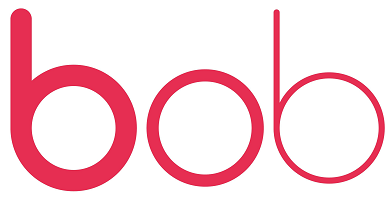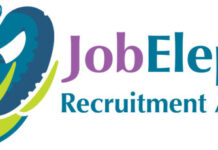
Gen Z and Millennials are determined to continue progressing in the technology field, but require better DE&I initiatives and clearer career paths
October, 2023 – NEW YORK, NY – Today HiBob, the leading HR tech disruptor that works with over 3,500 companies around the globe, released the findings of their 2023 Young Generation in Tech workplace study. Charged by a difficult year of layoffs and company restructurings in the tech sector, the report reveals data and findings around how employees aged 21 – 30, who work in the tech field, are feeling about their current role, employer, and industry.
The report demonstrated that while young tech professionals are overall confident in the job market, their company and job security, many are disengaged by no clear career path, not enough time in the office with their colleagues, the potential impact of AI, and a lack of DE&I initiatives. While many are still experiencing promotions, tech companies must pay attention to what their younger workers are prioritizing, especially since more than half answered they are being approached by other companies for new roles.
Job Satisfaction and Job Security
Despite a downturned economy and inflationary pressure that tech has seen over the last year, a slight majority (55%) of respondents claimed they are very satisfied with their current role, and 65% claimed they feel very secure when rating the security of their position – while only 14% claimed their position was not secure. In 2022, HiBob found that 70% of respondents in the same survey said that they expected to be laid off in the current downturn, or were unsure about their job security – a stark contrast from what the results proved in 2023. An additional 57% claimed they were confident about company performance and the state of the market. With slight inflationary pressures easing and major tech layoffs dwindling, this jump in sentiment indicates a positive outlook for young employees.
Almost half (49%) of respondents said their workplace experience meets their expectations, and an additional 37% said their workplace experience exceeds their expectations, indicating that many tech firms have continued to prioritize the employee experience, but there is still work to be done.
Artificial Intelligence
With the potential risk of job displacement from AI, 56% of total respondents claimed they have had to completely change their career plans and re-evaluate against this new difficult backdrop, but overall a slight majority (59%) claimed it had not affected their decision to stay in the tech industry. With AI on the horizon to touch all facets of the sector, 68% of respondents claimed they “felt the impact of AI on their current roles would be medium to high,” and interestingly more men (48%) than women (39%) felt confident and positive attitudes towards the impact of AI on their role. These results indicate that companies need to prioritize female training and growth in using AI to enhance their current positions.
Promotions and Career Growth
The study found that despite layoffs and attrition difficulties from the tech sector this year, 69% of respondents have been promoted either once (41%) or twice (29%) in the last 24 months. Not surprisingly then, 39% plan to stay in their current roles for the foreseeable future, and 33% have no intention of leaving in 2023. That said, despite decent health among promotions and intent to stay, there were some driving factors on what would prompt younger employees to leave their current positions:
- 41% of respondents could be persuaded to leave for a better compensation package
- 33% would leave their current role for a promotion
- 31% would leave their role for more responsibility and management opportunities
When asked to choose what they least liked about their current company, the most popular response was “no clear career path (19%),” followed by “not enough time in the office (16%).” This implies that Gen Zers and young Millennials in the U.S. highly value career progression, and they are willing to spend more time at the office to achieve this upward mobility. When prompted about what they liked most about their current job, 34% answered “their current role” as the most popular answer, followed by “company culture (30%).”
Health Benefits
Intel from the survey revealed tech companies are offering strong health benefits, and employees are thankful. When questioned about the workplace benefit they valued the most, 40% of respondents chose “health benefits,” and half of those in the study checked that they were currently “very happy” with the benefits package they received, while only 14% were not happy. Appreciation for health benefits trumped stock options, parental leave, and the company’s overall financial security.
Work-Life Balance and Mental Health
While 73% of total respondents claimed their work-life balance is just right or better than expected, 60% claimed the expectations from their role is currently impacting their mental health. When asked what their current company does to support their mental health and wellbeing, respondents answered the below:
- Only 38% claimed they are given a manageable workload
- Only 36% claimed they have the resources to do their job well
- Only 20% claimed their companies offer access to mental health and wellbeing specialists
- Only a mere 7% claimed their company provides education and training about DE&I
- Only 23% of respondents said their companies promote inclusivity by offering ERGs (employee resource groups)
- Only 29% claimed their firm had inclusive hiring practices
These results indicate that while young employees may be satisfied with their current job tasks and health benefits, other factors including company resources, training, and lack of DE&I initiatives may be impacting morale and overall mental health.
“At HiBob, we’ve continued to see growth amidst mid-sized, modern tech companies over the last year. Despite continued headlines of layoffs and the threat of AI on employees, younger workers are hungry to stay in their current roles and fields, and expect a bit more from their employers around diversity and inclusivity resources and hiring,” said HiBob CEO and Co-founder Ronni Zehavi. “The demand for better cultural initiatives from employees in the midst of the AI/machine learning shift will further drive the need for HR tech that brings people, cultures, community groups, and organizations together on a more personal level.”
The national survey was conducted online by Pollfish on behalf of HiBob in August of 2023. It concludes responses from 1,000 full-time GenZ/young Millennial employees aged 21 – 30. The survey equally analyzed the views of those aged 21-25 (50%) and those 26-30 (50%).
To learn more about the full data findings and analysis, please visit here.
About HiBob
HiBob is at the forefront of HR innovation, transforming the way organizations operate in the modern world of work with its award-winning HCM ‘Bob’. Its modular approach caters to the needs of multinational companies seeking agile technology and robust analytics to support operations across distributed workforces in the ever-evolving economic and workplace landscape. Companies using Bob are able to accelerate hiring, retain the best talent, upskill staff, and elevate employee experience.
More than 3,500 global businesses serving hundreds of thousands employees worldwide – including Uala, SugarCRM, The Josh Bersin Company, Fiverr, The&Partnership, and VaynerMedia – appreciate its ease of use, high configurability, and the ability to customize based on business requirements. The platform’s high adaptability and focus on people engagement and community creation are seen in its consumer-grade user interface, providing easy access to HR processes while fostering engagement.
Awarded one of the best places to work in 2023, HiBob’s global team of “Bobbers” come together to build the exceptional in an inclusive and empowering culture.
For more information about HiBob, visit www.hibob.com



